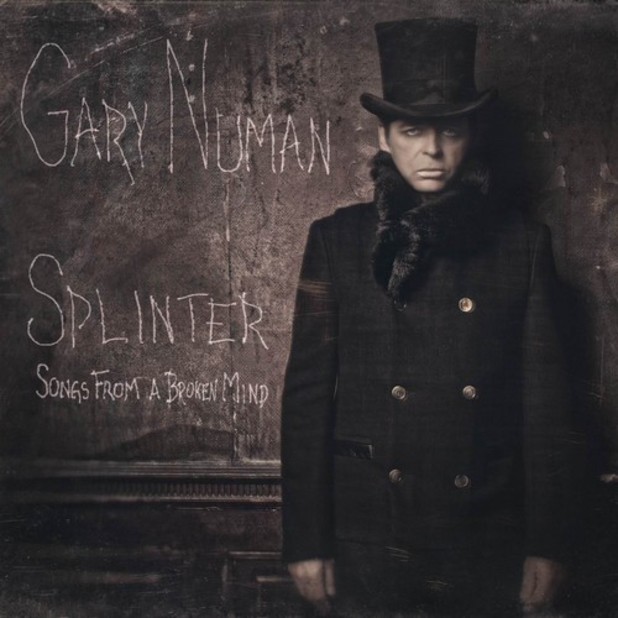For a long time, Gary Numan’s music career has felt like some kind of bizarre accident. The man who is often dubbed the "godfather of electro" was originally signed as frontman of a supposed punk band, Tubeway Army; he only discovered synthesizers because a Minimoog was left in the studio. His first major hit ‘Are Friends Electric?’ was one of the most unlikely number one singles ever – over five minutes long, with lengthy spoken word bits and a robotic prostitution lyrical theme, cobbled together from two unfinished songs and based around a flubbed note. His famous, often-imitated makeup-heavy image and stiff stage presence were little more than the honest result of putting a shy kid with bad acne on one of television’s biggest stages.
All this left Numan with a rather strange career trajectory – he couldn’t handle fame when he had it (famously ‘retiring’ in 1981), then couldn’t recapture fame when he wanted it (releasing 16 albums since). He was routinely derided in the press, often by the same publications that would call him a ‘legend’ a decade later, when acts like Nine Inch Nails and Basement Jaxx started namechecking him. There’s reason for this – while most 80’s synthesizer music sounds inexorably tied to its era, Numan’s best work has always felt timeless. Overplayed as it is, ‘Cars’ still feels relevant today, and just may outlive all of us. When his late-career resurgence began in earnest with his 1994 darkwave album Sacrifice, it never felt like an attempt to recapture past glories – if you didn’t know about his past, you’d think he was just some new guy with an odd voice who listened to a lot of industrial music. Luckily, now two decades into this "second career", that odd voice has held up.
This is important, because really, that’s Numan’s strongest asset – while he’s always been an expert in the sort of chord progressions and atmosphere that inspire some serious chills, all he really has to do is let his voice fly. Just listen to ‘I Am Dust’, the opening track here; when he belts out the song’s big chorus, it conjures the sort of power that all the Trent Reznors in the world couldn’t capture, no matter how loud they yell. No disrespect to Reznor, but Numan’s voice really is a singular thing. There’s nobody who sounds quite like him – it’s all up to the way he uses it.
Thankfully, the songs on Splinter are built to show off the man’s strengths. In a way it’s the album we’ve all been waiting for since Sacrifice turned him around – while his last few tended to repeat certain things from song to song, there’s some real variety here. The loud guitars and skittering industrial beats are still there for the most part, but this time he knows when to let things breathe a bit – ‘Where I Can Never Be’ gets a lot of mileage out of a creaky, gothic atmosphere, while ‘Lost’ is just him and the keyboards. There are dramatic, poisoned string arrangements (‘The Calling’), monster disco floor-fillers (‘Love Hurt Bleed’), earworms (‘Who Are You’), and slow anthems (‘Everything Comes Down to This’). There’s even something for those who liked the vintage Numan – the brooding and relentless title track harkens all the way back to Replicas. He even has a few tricks up his sleeve instrumentally (perhaps courtesy of his sidekick Ade Fenton), such as glitched out techno beats on ‘A Shadow Falls On Me’, or the beautiful coda of ‘My Last Day’, which has a layered, cinematic feel to it. Even at 55 minutes (quite long for a Numan album), it’s full of ideas.
This is the sort of inspiration that only seems to hit him when he’s going through a rough patch. Nice for his fans, but a little unfortunate for him. Pure, the album that was seen as his real comeback (even spawning a top 40 single!), was mostly inspired by the loss of an unborn child and a dog. Even when he was in the doldrums of the mid-80s, the unexpected death of Tubeway Army bassist Paul Gardiner led him to write ‘A Child With the Ghost’, one of his greatest songs ever. This time Numan struggled with depression in the past few years (which nearly broke up his marriage). This all comes through in the lyrics, which are mostly good (one particularly haunting line: "I don’t believe in the goodness of people like me"), even if they lay it on a little thick sometimes. Still, it provides a pretty good idea of what’s on Numan’s mind – ‘My Last Day’ is Numan reflecting upon just that, the sort of depressing thought that inspired him to subtitle the album "Songs From a Broken Mind". He’s telling the truth – that mind was apparently too broken to even write songs for a good while, hence the long wait. That such a period resulted in arguably his best album in about three decades is just another odd twist in a career that’s been nothing but.


